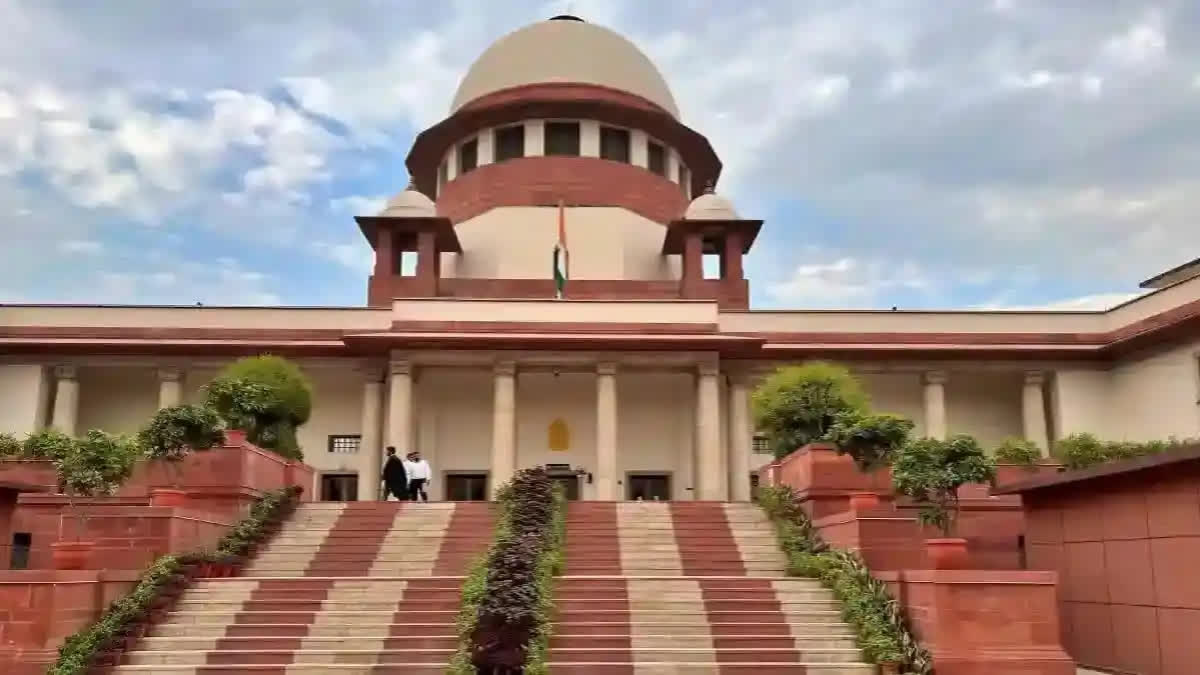New Delhi: On the heels of the Supreme Court reserving its order on the Kerala government’s plea seeking interim relief in a lawsuit contesting a ceiling on the state’s net borrowing, the state, in an unprecedented move, on Saturday has again moved the apex court against President Droupadi Murmu for withholding assent for the four Bills passed by the Kerala Legislature.
The state government’s petition said it has to be pointed out that the President, which would effectively mean the Council of Ministers, aiding and advising the President, has not given any reason whatsoever for withholding assent for four out of the seven Bills reserved by the Governor. “This is a highly arbitrary action, violating Article 14 of the Constitution, as well as Article 200 and 201 thereof”, said the state’s plea.
“The attention of the President, acting on aid and advice, has to be brought to the specific provision of a State law which is ostensibly in conflict with a central law, for the conflict to be cured by the assent of the President. In the instant case, there is no provision of any of the four bills which have been placed before the President as being contrary to or impinging upon any central law. As such, there is no constitutional basis which would permit the President to withhold assent”, said the plea.
The state government has argued that the reference of the seven Bills to the President has to be recalled on the grounds of constitutional morality.
The state objected to the Union government’s action, in advising the President of India to withhold assent to bills which had been passed by the state legislative assembly as long as 11-24 months back, and which were wholly within the domain of the state. “Subverts and disrupts the federal structure of the Constitution and is a grave encroachment into the domain entrusted to the State under the Constitution”, said the plea.
The state further argued that the conduct of the Governor in keeping Bills pending for long and indefinite periods of time, and thereafter reserving the Bills for the consideration of the President without any reasons relatable to the Constitution is manifestly arbitrary and violates Article 14 of the Constitution. “The actions impugned defeat the rights of the people of the State of Kerala under Article 21 of the Constitution, by denying them the benefits of welfare legislation enacted by the State Assembly”, said the plea.
The state contended that on a conjoint reading of Articles 200 and 213 of the Constitution, it is clear that a Bill can be reserved for the consideration of the President, only if the provisions of the Bill require the previous sanction of the President for its introduction in to the Legislature (for instance Article 304(b) or Article 349 of the Constitution).
The plea stated that if it would have been deemed necessary to reserve a Bill containing the same provisions for the assent of the President (for instance, Articles 31A or 31C or 288(2)). “if the said Bill would be invalid, unless reserved for the consideration of the President and assented to by the President (Article 254(2), where repugnant state laws would prevail notwithstanding the repugnancy in the State); and if it derogates the powers of the High Court so as to endanger the position which that Court is by the Constitution designed to fill”, said the plea.
Citing the delay in not dealing with bills for over two years, the state said the Governor has rendered ineffective and otiose the functioning of a limb of the State under the Constitution, i.e. the legislative assembly. The very existence of the legislative assembly of the State has been rendered meaningless by the Governor, though the Governor is a part of the legislative assembly, it added. “A bare perusal of Article 200 makes it discernible that there is no general discretion conferred on the Governor therein. Thus, a bill presented to the Governor must be dealt with in accordance with the aid and advice of his cabinet of ministers and not otherwise”, said the plea.
The four bills are: 1) University Laws (Amendment) (No. 2) Bill, 2021 - Bill No. 50, 2) the Kerala Co-operative Societies (Amendment) Bill, 2022 - Bill No. 110, 3) the University Laws (Amendment) Bill, 2022 - Bill No. 132, and 4) the University Laws (Amendment) (No. 3) Bill, 2022 - Bill No. 150 for consideration of the Hon’ble President and quash the same.



